Resources
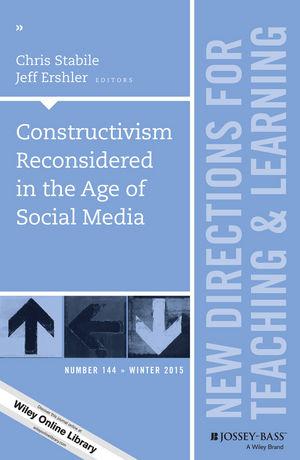
Click Here for Book Review No longer relegated to just the classroom, learning has become universal through the use of social media. Social media embodies constructivism itself as the users engage in the development of their own meaning. And, constructivism is relevant to education, and learning theory and technological advance can be better understood in the light of one another. This volume explores: - particular areas influenced by constructivist thinking and social media, such as student learning, faculty development, and pedagogical practices, - practical and useful ways to engage in social media, and - dialogue and discussions regarding the nature of learning in relation to the technology that has changed how both faculty and students experience their educational landscape. This is the 144th volume of this Jossey-Bass higher education series. It offers a comprehensive range of ideas and techniques for improving college teaching based on the experience of seasoned instructors and the latest findings of educational and psychological researchers. (From the Publisher)
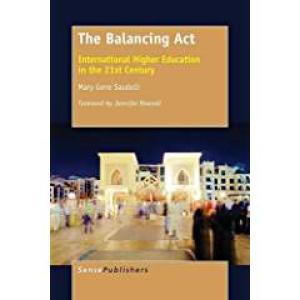
Why is it important to learn about higher education in international contexts? Why learn about curriculum, teaching, and learning at Dubai Women’s College of the Higher Colleges of Technology? Global education systems have remarkable contributions to make to understandings of 21st century curriculum, teaching, and learning. Adult educators across the globe are exploring how to make learning meaningful in a world that is experiencing change, global migration, rapid development, cross-cultural communication demands, and systems with mandates for accountability and international standardized measures of quality. Dubai is an Emirate in the United Arab Emirates that has experienced these issues, which have had a profound impact on higher education for Emirati women. The international educators who contributed to this book reveal how they designed and implemented a curriculum that represented a complex balancing act replete with recognition of local, global, religious, cultural, and societal implications. There is no other book like The Balancing Act: International Higher Education in the 21st Century. It reveals the nature of a highly devoted team of international educators who designed a contextually and globally relevant transdisciplinary, 21st century curriculum. “Dr. Mary Gene Saudelli has tremendous knowledge and experience with delivering world class education in the Middle East. She has a deep commitment to progressive education and an understanding of global mindedness. It is wonderful that she shares her research on a wide range of topics in educational curriculum and global issues. In The Balancing Act: International Higher Education in the 21st Century, Dr. Saudelli opens the dialogue of reciprocity in learning from higher education in diverse contexts. This book honours Emirati women’s backgrounds and differences, yet cherishes the uniqueness of the international educators involved in this study.” – Kim Critchley, Dean and CEO, University of Calgary in Qatar (From the Publisher)
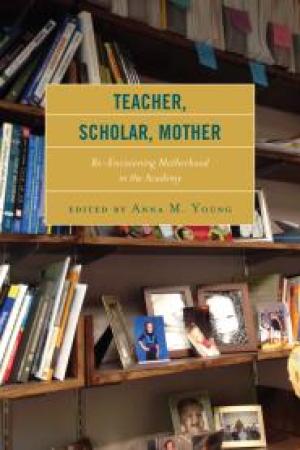
Teacher, Scholar, Mother advances a more productive conversation across disciplines on motherhood through its discussion on intersecting axes of power and privilege. This multi- and trans-disciplinary book features mother scholars who bring their theoretical and disciplinary lenses to bear on questions of identity, practice, policy, institutional memory, progress, and the gendered notion of parenting that still pervades the modern academy. (From the Publisher)
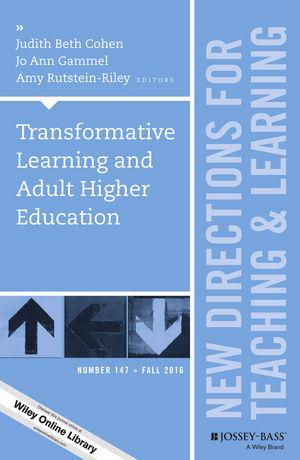
Click Here for Book Review Presenting current trends in transformative learning and adult higher education, this volume paints a vivid picture of the Transformative Learning theory in action. The concepts that knit these articles together despite the variety of educational settings and populations are: relationships, community, and the body experience - often missing in higher education. This volume includes: - the voices of marginalized populations often excluded from research studies such as community college students, emerging adults with learning differences, English language learners, native Alaskans, African-American health educators, doctoral students, and yoga practitioners; - new paradigms for thinking about adult undergraduate education; - new ways to deal with social conflict and advise doctoral students; and - personal stories from Black women leaders, college teachers, student writers as well as pregnant women, and social service providers. This is the 147th volume of this Jossey-Bass higher education series. It offers a comprehensive range of ideas and techniques for improving college teaching based on the experience of seasoned instructors and the latest findings of educational and psychological researchers. (From the Publisher)
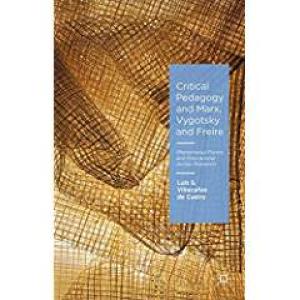
Click Here for Book Review This book explores Marx's theory of the phenomenal forms in relation to critical pedagogy and educational action research, arguing that phenomenal forms pose a pedagogical obstacle to any endeavour that seeks to expand an individual's awareness of the larger social whole. (From the Publisher)
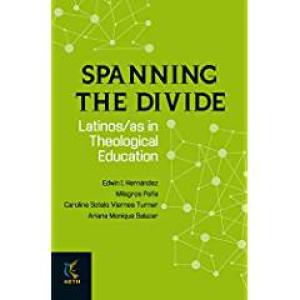
Click Here for Book Review This book provides a detailed look at the current state of Latino/a theological education in the United States. This includes consideration of the career development and opinions of Latinos/as in seminary education, as well attention to other important modes of Latino/a theological education, like non-degree programs and Hispanic-serving organizations like the HTI and HSP. Another goal of this project was to make recommendations for ways in which schools of theology can do a better job preparing the next generation of Latino/a religious leaders to serve as bridge builders for the future. Thus, we paid special attention to how hospitable theological educational institus are to Hispanics. This book also offers recommendations on improving Latino/a recruitment, revamping the curriculum and Hispanic ministry education, tending better to the sense of community on campuses, and so much more. (From the Publisher)
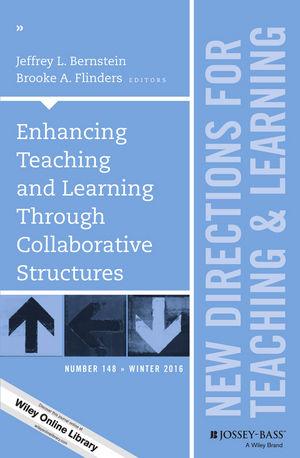
Click Here for Book Review In this volume, the authors contend that teaching and learning must be viewed as communal work, whether conducted in one classroom, with colleagues at a programmatic level, or when tackled on a university-wide scale. When educators partner with faculty colleagues or students in teaching and learning, it becomes possible to: - improve the educational experiences of all students, - model professional behaviors that students will soon be expected to embrace, and - positively impact graduates, peers, campuses, and even communities at large. By intentionally creating collaborative structures for communal work to occur, educators can broaden access to opportunities for students, improve engagement experiences within the community, and improve faculty support and scholarship. Exploring multiple perspectives on collaborative structures in teaching and learning, this volume discusses ways to consider the collaborative structures within education that allow for shared contributions to teaching and learning. It discusses the need for practitioners to view teaching and learning as truly communal work, regardless of the type of setting. This is the 148th volume of this Jossey-Bass higher education series. It offers a comprehensive range of ideas and techniques for improving college teaching based on the experience of seasoned instructors and the latest findings of educational and psychological researchers. (From the Publisher)
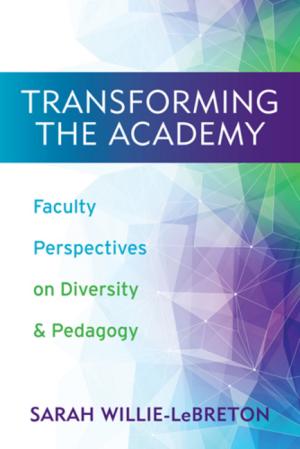
Click Here for Book Review In recent decades, American universities have begun to tout the “diversity” of their faculty and student bodies. But what kinds of diversity are being championed in their admissions and hiring practices, and what kinds are being neglected? Is diversity enough to solve the structural inequalities that plague our universities? And how might we articulate the value of diversity in the first place? Transforming the Academy begins to answer these questions by bringing together a mix of faculty—male and female, cisgender and queer, immigrant and native-born, tenured and contingent, white, black, multiracial, and other—from public and private universities across the United States. Whether describing contentious power dynamics within their classrooms or recounting protests that occurred on their campuses, the book’s contributors offer bracingly honest inside accounts of both the conflicts and the learning experiences that can emerge from being a representative of diversity. The collection’s authors are united by their commitment to an ideal of the American university as an inclusive and transformative space, one where students from all backgrounds can simultaneously feel intellectually challenged and personally supported. Yet Transforming the Academy also offers a wide range of perspectives on how to best achieve these goals, a diversity of opinion that is sure to inspire lively debate. (From the Publisher)
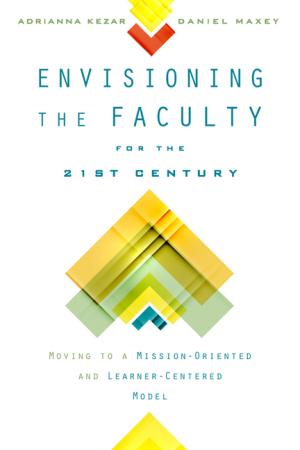
Click Here for Book Review The institution of tenure—once a cornerstone of American colleges and universities—is rapidly eroding. Today, the majority of faculty positions are part-time or limited-term appointments, a radical change that has resulted more from circumstance than from thoughtful planning. As colleges and universities evolve to meet the changing demands of society, how might their leaders design viable alternative faculty models for the future? Envisioning the Faculty for the Twenty-First Century weighs the concerns of university administrators, professors, adjuncts, and students in order to critically assess emerging faculty models and offer informed policy recommendations. Cognizant of the financial pressures that have led many universities to favor short-term faculty contracts, higher education experts Adrianna Kezar and Daniel Maxey assemble a top-notch roster of contributors to investigate whether there are ways to modify the existing system or promote new faculty models. They suggest how colleges and universities might rethink their procedures for faculty development, hiring, scheduling, and evaluation in order to maintain a campus environment that still fosters faculty service and student-centered learning. Even as it asks urgent questions about how to retain the best elements of American higher education, Envisioning the Faculty for the Twenty-First Century also examines the opportunities that systemic changes might create. Ultimately, it provides some starting points for how colleges and universities might best respond to the rapidly evolving needs of an increasingly global society. (From the Publisher)
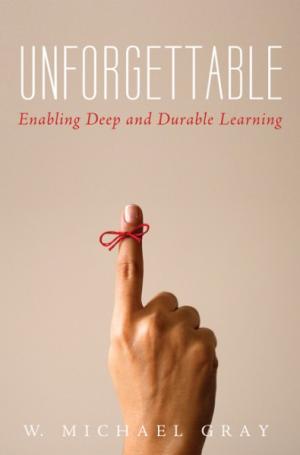
We have an uneasy relationship with the relentless deluge of information gushing out of academia and our media outlets. To turn it off is escapist, but to attempt to cognitively grapple with it is overwhelming. In Unforgettable: Enabling Deep and Durable Learning, a nationally recognized master teacher gives professors and their students the means to chart a clear path through this information explosion. Humans crave explanatory patterns, and this book enables teachers to think deeply about their academic disciplines to find and articulate their core explanatory principles and to engage their students in a compelling way of thinking. An alternative title for this book could be Why the Best College Teachers Do What They Do because the author articulates a compelling rationale that will equip faculty to create and deliver transformative courses. Students in transformative courses grapple with essential questions and gain mental muscle that equips them for real world challenges. (From the Publisher)